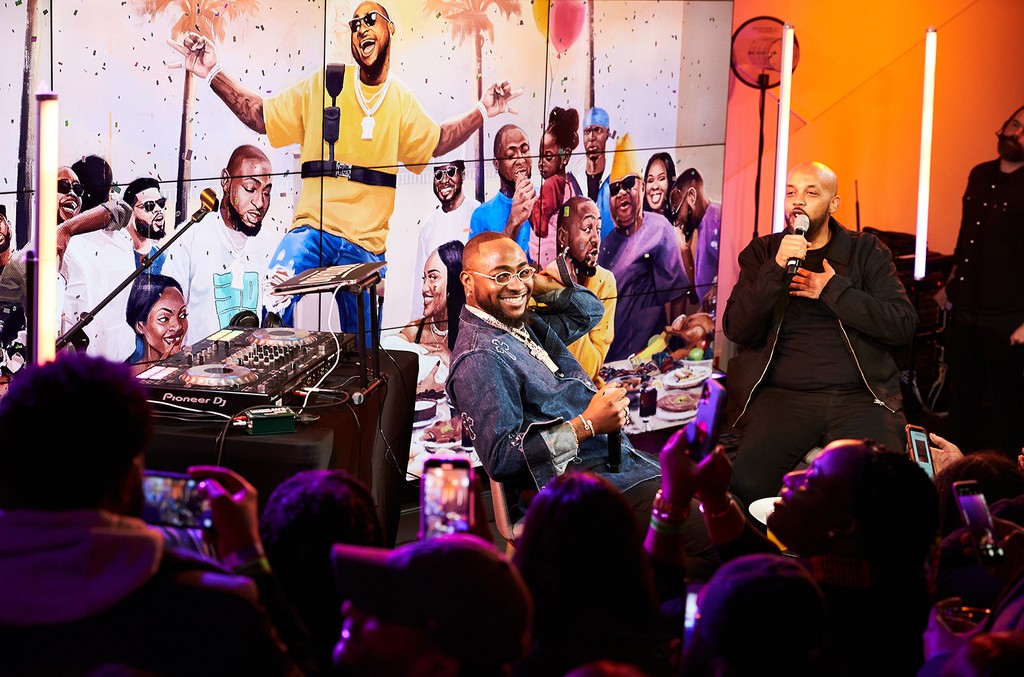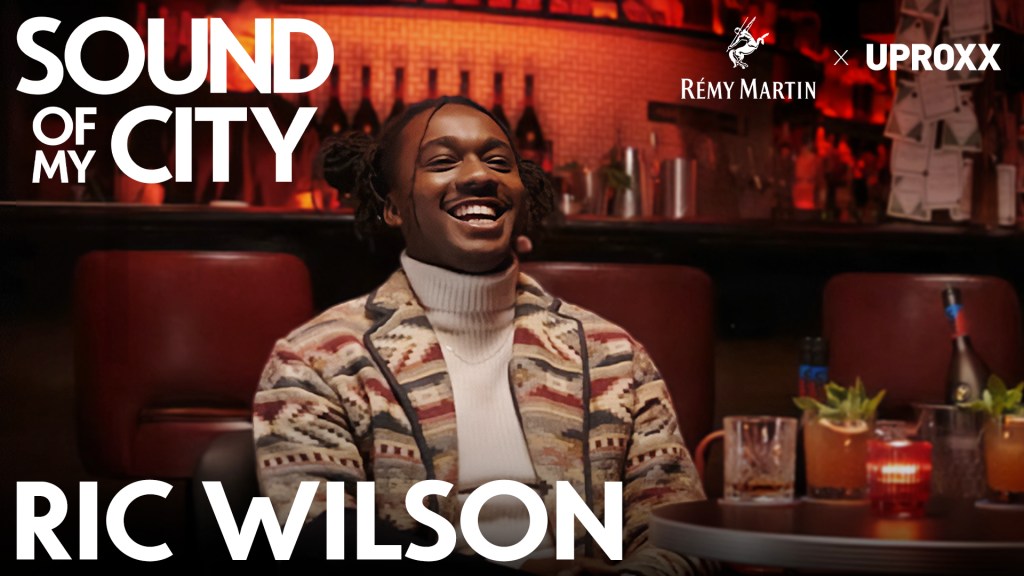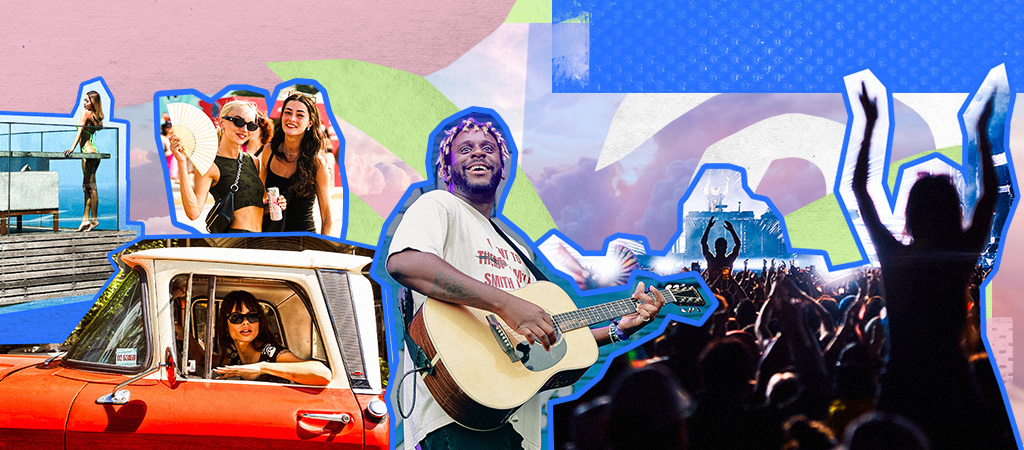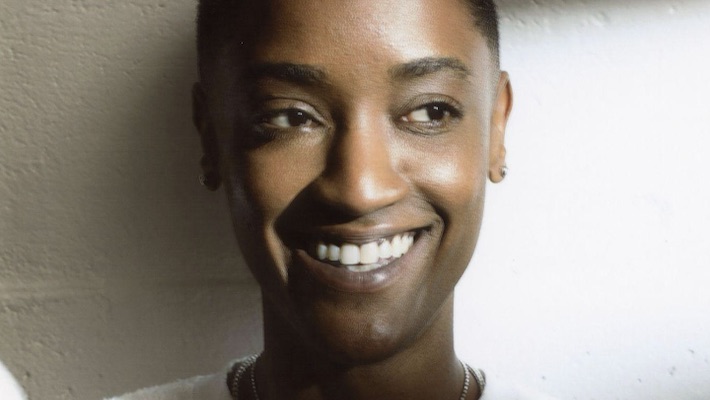Before YouTube director of urban music Tuma Basa made hip-hop one of the hottest genres in the world, he grew up in Congo, Zimbabwe — and Iowa. Now he’s using his dual cultural background to do the same for African music.
Tuma Basa says that it was the late Andre Harrell who encouraged him to become a conduit between Africa’s music business and the West. “Andre would always say, ‘Tuma, you’re the African ambassador,’” Basa recalls of the Uptown Records founder, who died May 7. “I’m like, ‘Yeah, I’m from Africa, but…’ and Andre would say, ‘No, you take care of that.’” Basa, in a hoodie, ball cap and bushy beard, smiles at the memory. He is talking via Google Hangout from his apartment in Harlem. “He saw it before I did,” he says. “It didn’t click right away.”
It’s not part of his official responsibilities as director of urban music at YouTube, but Basa now agrees: It’s his mission — his “responsibility,” as he puts it — to help the many diverse and vibrant styles of African music catch fire in the United States and elsewhere around the globe. And Basa — who turns 45 in July — is distinctly qualified for the ambassadorial role that Harrell envisioned for him.
Born in Zaire (now Congo) to a Rwandan family, Basa spent his childhood in the United States when his father, who works as a college professor, moved the family stateside for graduate studies at the University of Iowa. In his teens he returned to Africa, living in Zimbabwe. Asked if he was a fan of African music during those formative years, Basa laughs. “No! That’s the thing. I was into American hip-hop.”
So much so that he aspired to be a rapper, taking B.2ma B. as his MC name. It wasn’t a dream that lasted that long, even after he returned to the United States. “It was what I call the ‘gatekeeper era,’” he says. “You had to physically be in L.A. or New York or a large market where you could break in either radio or with a label. There was no chance of a rapper coming out of Iowa.”
But Basa didn’t abandon hip-hop when he put down the mic. Rather, he became one of its gatekeepers, first in music programming at BET and MTV — working the latter gig while getting his MBA at New York University’s Stern School of Business — then helping Sean “Puffy” Combs launch REVOLT, where he served as vp music programming. In 2015 he landed at Spotify as global programming head of hip-hop, where the Rap Caviar playlist he curated became one of the streaming service’s major assets — its almost 9 million followers made it one of Spotify top five playlists globally, and Rap Caviar placement became crucial in breaking new tracks. He joined YouTube in 2018.
Had Basa come of age in the streaming era, his dream of becoming a rapper (“let’s call him Lil 2ma B.,” he says) might have gone differently. SoundCloud, Instagram and YouTube have lowered the barrier to discovery, and it’s that technology that, Basa says, is fueling Africa’s emerging music markets. (He mentions the ease and affordability of travel as well, though the pandemic has complicated this indefinitely.)
In addition to helping Billboard identify many of the players spotlighted in this Deep Dive, Basa sat for a 50-minute interview to discuss the influence of the African diaspora on the popularity of African music in the West; the misconceptions that major labels have about African artists; and how those artists should manage their expectations about breaking in the United States.
Do you think there is a misconception in the West that Africa is a country as opposed to a continent of over 50 countries?
A hundred percent. Africa doesn’t get the courtesy of specificity. I’ll give you an example. When people are addressing a crowd, they’ll be like, “London, are you in the house?” And then they’ll say, “Africa, are you in the house?” A continent of 1.3 billion people gets lumped together. It’s only recently that people are getting better at differentiating, although even now, a lot of the music we’re talking about is coming from Nigeria, and we’re just calling it African music.
How has the diaspora affected the popularity and the growth of African music?
It’s had a humongous effect. In the 1980s and ’90s there was a wave. Let’s call it the “Akeem Olajuwon era.” Around that time, a lot of Africans moved to Toronto, to Houston. [Olajuwon, a Nigerian-American NBA star, played for both the Toronto Raptors and Houston Rockets.] A lot of Ghanaians lived in the Bronx. I live in Harlem — 116th Street is all French-speaking West Africans from Senegal, Guinea, Mali. There are a lot of Nigerians in Brooklyn. Ethiopians in Seattle and Los Angeles. There are Cape Verdeans in Rhode Island and Boston. Ugandans in Boston. [Washington] D.C. has a lot of Africans — everything, everyone. There are Somalis and Sudanese in Minneapolis.
And they have kids.
Yes, and those kids are 18 to 21 — they’re club age now. You watch college football and basketball, and you’ll see that a whole bunch of players have African last names. They are of Nigerian and Tanzanian and Cameroonian descent. They’re the ones popping bottles in the clubs and saying, “That’s my song.”
How does the music travel from, say, Nigeria, to Europe or the United States?
It doesn’t get there by airplane like when I was growing up.
Now it travels via the internet?
Through social media. Lyor [Cohen, YouTube’s global head of music] and I did an event in London in February, The Excellence Brunch. It was a celebration of black British culture. We invited the U.K. urban music community, and all those guys are like one generation removed from a parent who was born on the continent. They identify as U.K. They’re black British people. It was the most popping party. Burna Boy, Stefflon Don, Maleek Berry, Jorja Smith, Tinie Tempah. There were so many, I can’t name all of them. This kind of cultural mix — these are the evangelists. If they hear a Nigerian record they like, they make it hot. London makes shit hot, then it gets to New York — and you know how it spreads from there?
Social media.
TikTok. I was driving our rental car to my storage unit in New Jersey, and Hot 97 [WQHT New York] was playing “Don’t Rush” by Young T and Bugsey. They are British, but they have origins in Africa. It’s not easy for British urban songs to get played in America because we have so much to choose from that people aren’t looking. That song went viral because of the Don’t Rush Challenge on TikTok. The distribution vehicle was social media, then YouTube, then the [digital service providers], and radio took it from there.
How is YouTube fostering African artists who are breaking here?
Burna is a perfect example. He won a BRIT Award. He was nominated for a Grammy, etc., etc. And he was popping in Nigeria. YouTube says this guy really is something. We put him on billboards in Times Square; did a whole spotlight documentary to show how big he is. And we got some Michael Jackson-type reactions. Atlantic even worked that record to radio.
What are the biggest misconceptions that the major labels and streaming platforms here have about African music and African artists?
Two things: The first one is, don’t be scared of songs that are 1 or 2 years old. We are neophiliacs here in America. We’re obsessed with the new and dismiss what we think is old. I’m not shocked when records blow up in the States one or two years after [they’re released in Africa]. It used to happen in Zimbabwe when I was a teenager. We would get music from the States late. It would blow up in the U.K. first and then it would come to Zimbabwe. Because of the internet, everyone thinks everything is day-and-date. Everyone gets everything at the same time. African records are taking a while to blow up over here; some African artists too. Davido’s “Fall” was over a year old [when it broke here]. That was a big, big record. It went to No. 13 on [Billboard’s] R&B/Hip-Hop Airplay here and over 100 million views on YouTube. That is not even close to Davido’s best song, but it’s his biggest song because it took off here in the States. “Drogba (Joanna),” the Afro B record, that was like a year old before it came to the States. Burna Boy’s “Ye” was like 2 years old by the time it got here. So, labels should not be afraid to reactivate because it’s a new audience. It’s information asymmetry. The audience here doesn’t know the song even though YouTube shows that the video was posted one year ago.
What’s the second?
I learned this from listening to Lyor. He was there in the ’80s when hip-hop was coming up, and he sees a lot of similarities in terms of the thirst for success, the drive — like the ecosystem that’s emerging in Lagos [Nigeria]. There are a lot of parallels to early hip-hop. I suspected as much because I remember ’90s hip-hop and how we had to look for it. You had to be active in pursuit because it wasn’t getting played on FM radio in the daytime.
What advice would you give to African artists and their managers about dealing with labels in the West?
They need to understand that the labels like numbers nowadays, so be prepared with your data or your demonstration of demand. It’s not going to be just enough that everybody likes it. Don’t assume that the executive or decision-maker [you are talking with] is in the clubs and seeing non-Africans responding to African music.
What else?
You have to physically be here. American audiences — at least urban audiences — have too many choices, and they are not really curious about what’s popping. You have to physically be here, and you have to be available for radio promotions, for interviews. Maybe post-corona[virus] there will be a little bit more of [the video conferencing] we’re doing here, but if you are overseas, in a different time zone, that makes it difficult. You have to be here to do the Summer Jams, the Birthday Bashes and the festivals. Even if you are a superstar in Africa, you are not as big here as you are there.
So, don’t expect to headline off the bat?
Don’t be mad when you get an opening slot. Mentally, that’s very hard, but don’t let your ego get in the way. I’m also talking to the managers who lobby for these things. They need to manage the expectations of their artists. You have to assume that people don’t know who you are and hope that your fans — a lot of artists from Africa have huge social media followings here from the diaspora — are going to follow, but they are a small minority of the audience you want.
I’ve heard rumblings that some labels have lowballed African artists with signing offers because they underestimated the success and status that these musicians have at home.
I don’t know if it’s a misconception, but they do that to artists here, too. That’s just something where labels have to do a bit more homework and relationship-building before those offers go out.
If you talk to someone like Chin Okeke in the live business in Africa, he will tell you that a lack of touring infrastructure there is hampering artists’ ability to grow their fan base at home. For instance, Naira Marley is ready to graduate to arenas in the United Kingdom, but in Nigeria, where he is hugely popular, there’s no venue that can hold more than 5,000 people.
Chin is a very good friend of mine. I’ll get to touring infrastructure in a second, but first, here’s something you should know about Naira Marley. He’s huge on YouTube, but he’s actually even bigger when you go over there because he appeals to the streets, and not everybody on the streets can afford the data or has Wi-Fi access. So, they will download an MP3 on a WhatsApp group and just play the same song over and over. It’s the equivalent of hip-hop during the mixtape days. A lot of African music happens off the grid.
OK. Let’s talk about the state of Africa’s touring infrastructure. What are your thoughts?
It’s going to improve, and I’ll tell you why: Basketball Africa League. My family is from Rwanda, and Rwanda has the first arena in Kigali. There are 10 African teams, and nine arenas are being made right now. The BAL games will be televised on YouTube once things get back to normal. So, it’s going to improve, and I know people who are looking at building midsize infrastructure. And then in December we have the Afrochellas, the Afro Nations and all the festivals.
In 2016, Drake and Wizkid’s “One Dance” sparked a similar conversation to the one we’re having about the global potential of African music. But it didn’t explode then. Four years later, it’s finally happening. What changed?
From a curation perspective, there weren’t a lot of American songs that you could play with to build a set. There weren’t a lot of songs that embraced that sound, like French Montana’s “Unforgettable” [in 2017]. Actually, before “One Dance,” there was Wizkid’s “Ojuelegba.” Drake and Skepta were on the remix of that, which was out maybe a year before. It was a big event — they premiered it on radio and social media. So, the canon grew and a lot of DJs, like DJ Wallah on Hot 97, started digging in and creating sets for their listeners.
There are other factors, too. At the end of 2018, [actors] Boris Kodjoe, Idris Elba and Anthony Anderson, [Hot 97 and Beats 1 on-air personality] Ebro [Darden], Bozoma Saint John from Endeavor — more than 40 celebrities and influencers with millions of social media followers — visited there for the Full Circle Festival and broke the internet. Then last year was The Year of Return in Ghana [in which the government encouraged African diasporans to return there to live and invest in the country], and the country gave out 800,000 visas.
So, we’re in a transition time right now: Travel is cheaper, social media is a big amplifier, and YouTube is Africa’s main line to the world. Put it on and you have the ability to discover.
There’s a strong entrepreneurial spirit in Africa’s music business. How is that helping with the discovery of new artists?
I’ll give you one more example. I’m on my honeymoon in Zanzibar, Tanzania. [Basa married entrepreneur Abaynesh Jembere in late December 2019]. All we heard was Diamond Platnumz. He owns a radio station.
Given that kind of success, do African artists need the West?
It’s a prestige thing. If something does well in the West, it’s a kind of validation — a signal that you’re going to make that overseas money, That’s something that we as Africans have to address. Sometimes you don’t need it, but when they make the announcement that you’ve signed with Sony, which is a Japanese company, it carries cachet.
How much of a chilling effect do you think the pandemic is going to have on the amplification you are talking about? People can’t travel. Artists can’t tour.
In the short run, yes. In the long run, no. They’re going to discover all the workarounds. So things like livestreaming and the ability to have face-to-face video conversations open up.
Given the massive potential that Africa represents to the major streaming platforms such as Spotify and Apple, why have they lagged in establishing a presence there?
That’s a cultural thing about willingness to pay. If you can get music for free and have other things that you must pay for — that’s the mentality. And I’m not the best person to talk about this, but is the pricing reflective of the incomes of people who live there? I think another part is the currency. Do these [digital service providers] accept Zambian kwacha and Swazi lilangeni and Rwandan francs? I don’t know.
In March, YouTube launched YouTube Music in Nigeria, which has a premium tier. In light of what you said about the challenges of audio streaming, do you see a growing demand for that type of service in Africa?
It’s this: Air travel is an essential part of economies or societies, and you have people that want a premium experience. They will pay extra so that they have more leg space or get served champagne. We’re saying that Africa is not a monolithic continent in terms of tastes and preferences and the desires for experience. We acknowledge that there are people who will pay for that [premium] service. They can afford it or culturally they’re not thinking only about subsistence. They’re not living in a rural area with an agrarian economy. Their lifestyle is sophisticated enough to micro luxuries in the way that Starbucks is a micro luxury in America. People pay three bucks for a cup of coffee. [YouTube Music’s premium tier in Nigeria costs 900 naira, which is about $2.40.]
How is African music going to influence the West or be exported to the West in the next five years?
I see it dominating choreography. We already see it happening in music videos like “This Is America,” which [Rwanda-born dancer-actress] Sherrie Silver did with Childish Gambino. I see it influencing fashion — [Off-White founder and Louis Vuitton menswear artistic director] Virgil Abloh’s parents are from Ghana. We’re going to see it from this next generation that knows both cultures: the flavor of Africa and the system in America.
And the music is going to be more mainstream. Remember, a lot of these African records are love songs and songs that make you dance. So, there’s going to be a lot more universal acceptance.



